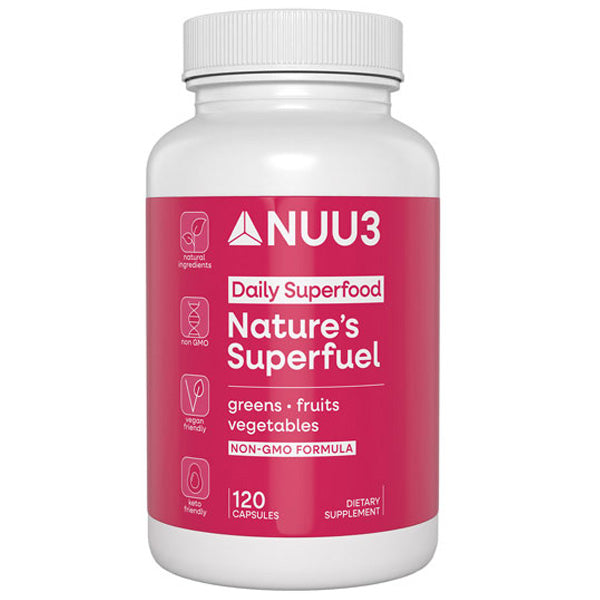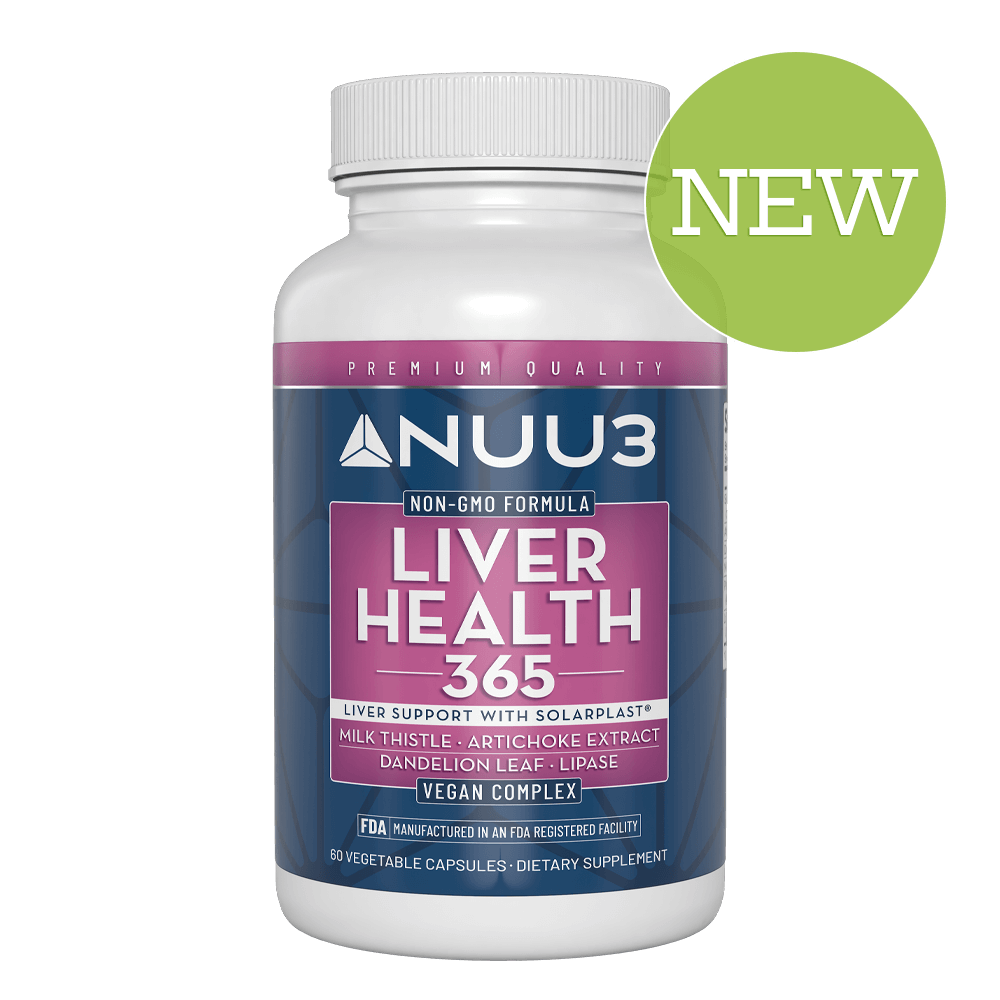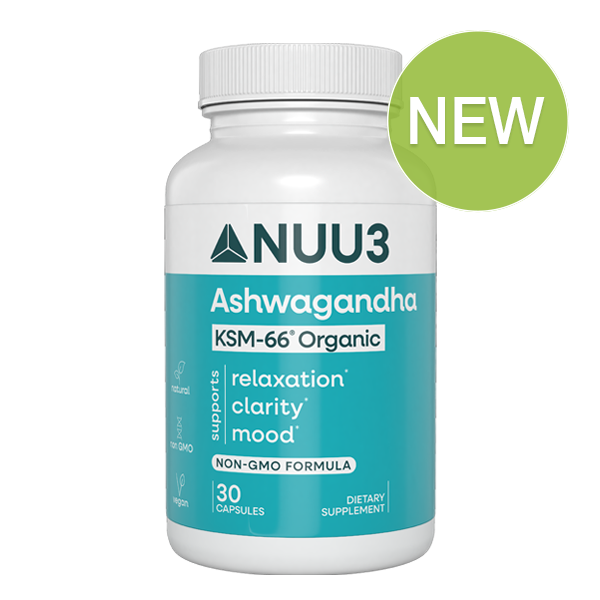How to Ease Gas Pain In the Chest

Experiencing trapped gas in the chest is more uncommon than gas in the digestive tract. It can be painful and bring discomfort to anyone who is experiencing it. The sensation feels more like a sharp pain which could be mistaken as relating to a heart attack or appendicitis.
Do you feel like there’s a gas bubble in your chest?
Are you experiencing frequent burping and chest pain?
If you answered yes, read on to learn about trapped gas in the chest, its causes, and how to treat it. Relief is just right around the corner!
Can Gas Cause Chest Pain?
If you’re wondering how to answer the question, “How can gas cause chest pain?” the answers can be drawn from several scenarios. Gas in the chest may result from eating irritating foods or excessive drinking of carbonated beverages.
Gas in the chest can also result from air not passing properly through the colon. In an attempt to exit the body, gas travels upwards to the chest, resulting in pain, discomfort, burping, or belching.
What Does Gas-Induced Chest Pain Feel Like?
Gas-induced chest pain affects everyone differently. The most common symptoms that occur simultaneously with this chest pain include burping and chest pain.
Here’s a list of other common sensations associated with gas in the chest:
- Pressure or tightness
- Feeling like there’s a gas bubble in the chest
- Increased instances of burping and belching
- Stabbing pain in the chest or upper abdomen region
- Bloating
- Indigestion[1]
What Is the Difference Between Gas Pain and a Heart Attack?
Gas-induced chest pain can be similar to heart attack symptoms. Trapped gas in the chest isn’t a medical emergency. However, if you are experiencing the symptoms above, along with shortness of breath, nausea, and lightheadedness, you should seek medical evaluation to rule out a heart condition.
You can also decipher gas pain from a heart attack by timing your symptoms. Trapped gas in the chest usually occurs after eating trigger foods such as carbonated beverages, sugar-alcohols, high-fiber foods, and spicy foods. Your chest pain is likely a result of gas if it occurs after eating and is accompanied by other symptoms such as belching, nausea, bloating, and indigestion.
If your chest pain is not caused by eating any of the possible trigger foods, it may be time to seek a proper medical evaluation. A doctor or a healthcare professional can help you identify the underlying causes of your chest pain through an examination and a battery of labs such as a blood test, chest x-ray, abdominal ultrasound, stool analysis, or lactose intolerance test.
Signs of Gas
Other than the symptoms described above, gas can manifest as the following:
- Bloating
- Burping
- Irritable or sensitive stomach
- Frequent passing of air through both ends
- Pain that moves to different parts of the stomach
- Cramping
How Can I Get Rid of the Trapped Gas in My Chest?
There are a lot of remedies that can relieve trapped gas in the chest. The sections below present the tips and tricks to help eliminate its annoying symptoms like burping and chest pain.
Get Moving: Taking a walk or exercising can drastically help with gas in the chest. Research[2] shows that physical activity enhances intestinal clearing and can prevent gas retention.
Get A Massage: Physical manipulation can help move gas along the digestive tract and expel it. Massaging the abdomen in a clockwise motion is a great technique to help ease burping and chest pain associated with gas.
Start at the upper left portion of your stomach and massage downwards toward the pelvis. Then, rub from the lower left portion of the abdomen towards the right. The massage motion looks like an “L” shape.
Try Baking Soda: Although there is no scientific evidence about the benefits of baking soda for gas pain, it may be worth a try. Baking soda can neutralize excess stomach acid and reduce bloating and bubbles in the stomach.
Drink Apple Cider Vinegar: Like baking soda, there’s only anecdotal evidence of apple cider vinegar’s efficacy in helping gas in the chest and abdominal discomfort. However, the anecdotal evidence is pretty strong!
Apple cider vinegar may help gas by acidifying the stomach. It promotes healthy acidic pH which works in breaking down food properly. Acidifying the stomach also prevents the fermentation of fiber-rich foods, which can be troublesome for some.
If you want to try apple cider vinegar for trapped gas bubbles in your chest or other symptoms associated with gas, start by diluting two tablespoons in water and drink it before meals.
If the sour taste of apple cider vinegar is too sharp for you, it’s worth considering a supplement that may bring the same benefits. NUU3 offers a Gut Thrive Wellness Combo that includes apple cider vinegar gummies and the popular Gut Health 365 supplement with pre-biotics, pro-biotics, and digestive enzymes. The NUU3 Gut Thrive Wellness Combo relieves bloating, promotes regular bowel movement, and optimizes gut health.
The proof is in the pudding. Many NUU3 customers reported that the gut health combo drastically reduced their bloating and indigestion.
Do Yoga Poses: Many yoga poses involve twisting the abdomen. This can help move gas downwards or upwards to be expelled from the body. Yoga can also help eliminate trapped gas by promoting the relaxation of muscles in the abdominal region.
Yoga poses that may help alleviate gas, burping, and chest pain include:
- Wide-legged forward bend (Prasarita Padottanasana)
- Happy baby (Ananda Balasana)
- Yogi squat (Malasana)
- Seated spinal twist (Vakrasana)
- Revolved lunge (Parivrtta Anjaneyasana)
- Cat-Cow (Marjaryasana/Bitilasana)
- Child’s Pose (Balasana)
- Knees-to-chest (Apanasana)
In a study[3] on Irritable Bowel Syndrome (IBS) patients, those who practiced yoga and meditation for eight weeks experienced significant reductions in symptom severity.
Drink Warm Liquids: Warm liquids encourage blood flow and muscle relaxation in the chest and abdominal area. To ease trapped gas, try warm water or herbal teas like chamomile, peppermint, or ginger.
Try Herbs: Herbs can be an excellent ally for removing trapped gas in the chest. Some of the most effective herbs for gas include caraway, coriander, fennel, turmeric, and anise.
Many ancient medicine systems regard fennel as one of the most medicinal herbs on the planet, especially for gastrointestinal health. Research[4] shows fennel’s phytochemicals are anti-inflammatory, anti-bacterial, anti-spasmodic, and anti-oxidative. By soothing inflammation and bloating in the digestive tract, fennel can help the passing of gas.
Like fennel, anise is also anti-inflammatory and anti-bacterial, making it an effective intervention for relieving gas in the chest and abdomen. In a study[5] on functional dyspepsia patients, those taking anise powder for four weeks experienced a significant improvement in symptoms and quality of life compared to the placebo group.
Tips For Avoiding Future “Gas Attacks”
One of the best ways to avoid having trapped gas in the chest is to prevent it.
Follow these tips to avoid unwanted gas-related symptoms like burping and chest pain.
Avoid Hard-to-Digest Foods: Hard-to-digest foods include dairy, gluten, high-fiber foods, fried foods, artificial sugars, and spicy foods. You can consult your doctor or a healthcare professional to rule out lactose intolerance, celiac disease, or non-celiac gluten sensitivity.
Taking digestive enzymes alongside hard-to-digest foods, like cruciferous vegetables and beans, may reduce indigestion, gas, and bloating.
Reduce Carbonated Beverage Intake: Carbonated beverages invite air into the digestive tract. If this air doesn’t pass through the intestines properly, it can lead to symptoms like burping and chest pain.
It can be helpful to reduce the amount of carbonated beverages in your diet to avoid gas bubbles in the chest and intestines. Look out for sodas, sparkling water, energy drinks, seltzers, kombucha, and some types of cold brew coffee.
Exercise Regularly: Sitting for prolonged periods can prevent gas from moving through your intestines. Stay moving and implement yoga, walking, running, strength training, or biking to avoid trapped gas in the chest.
Stay Hydrated: Staying adequately hydrated ensures movement in your digestive tract. Regular bowel movement is essential for preventing bloating and gas in the chest. When hydrating, remember to avoid carbonated beverages like the ones mentioned above.
Use Medications for Indigestion: A further answer to the question “How Do I Get Rid of the Trapped Gas in My Chest?”, certain over-the-counter medications offer relief. Gas-X, Pepto Bismol, Tums, and Beano are all formulated to alleviate gas and indigestion.
If these over-the-counter medications don’t seem to help eliminate gas bubbles in your chest or abdomen, it’s best to consult with your doctor for stronger medications.
Why Am I Dealing With Gas?
You may be dealing with gas for several reasons. As previously mentioned, trapped gas in the chest and abdomen can result from certain dietary choices. However, underlying medical conditions can also contribute:
- Gallbladder disease
- Small Intestinal Bacterial Overgrowth (SIBO)
- Acid Reflux
- Irritable Bowel Syndrome (IBS)
- Celiac Disease
- Gastroparesis
- Food Poisoning
Certain medications like non-steroidal anti-inflammatory drugs (NSAIDs) and laxatives can also cause gas, bloating, and indigestion.
To prevent infections like SIBO and food poisoning, you can bolster your immune system with the necessary nutrients to keep it running optimally. The NUU3 Active Immunity Gummies contain herbs and nutrients that support immunity, protect against infections, and promote cellular health.
The NUU3 Active Immunity Gummies also feature bromelain, an enzyme found in pineapple. Bromelain can be helpful for inflammation and indigestion which contribute to gas.
FAQ
You can find answers to frequently asked questions about gas in the chest and its associated symptoms below.
How Long Will Trapped Gas Last?
Trapped gas should pass on its own within a few hours or days. However, if your symptoms like gas bubbles in the chest persist, you should consult with a doctor to determine whether or not these symptoms are associated with other serious conditions like heart disease or intestinal obstruction.
What Sleeping Position Relieves Gas?
Laying on your left side may help relieve gas in the chest or abdomen. This position supports the natural movement of air and matter through the intestines.
Do Probiotics Help With Gas?
Probiotics refer to live bacteria or yeast that can help restore beneficial gut microflora. Good gut health is essential for whole-body health.
Probiotics may help with gas, bloating, and indigestion by populating the intestines with beneficial bacteria. However, they may not be warranted in cases of SIBO.
Currently, the most researched probiotic strains for gas, bloating, and other gastrointestinal symptoms include lactobacillus and bifidobacterium species.[6]
Conclusion
Trapped gas in the chest can leave you with uncomfortable symptoms. However, you don’t have to deal with them for long.
Various remedies can help you shake those bothersome symptoms like burping and chest pain. Refer back to previous sections for more specific guidance, such as what foods and beverages to reduce and herbal allies to try.
You can also consider the NUU3 Gut Thrive Wellness Combo kit to bust your bloating and relieve gas.
If the feeling of gas in your chest or abdomen isn’t resolving on its own, consult with a doctor or a healthcare professional for proper diagnosis and treatment.
References
1] ↑https://health.clevelandclinic.org/can-gas-cause-chest-pain
2] ↑https://pubmed.ncbi.nlm.nih.gov/17029608/
3] ↑https://pubmed.ncbi.nlm.nih.gov/36422517/
4] ↑https://www.tandfonline.com/doi/full/10.1080/10942912.2023.2192436
5] ↑https://pubmed.ncbi.nlm.nih.gov/25709650/
6] ↑https://www.ncbi.nlm.nih.gov/pmc/articles/PMC5900870/













